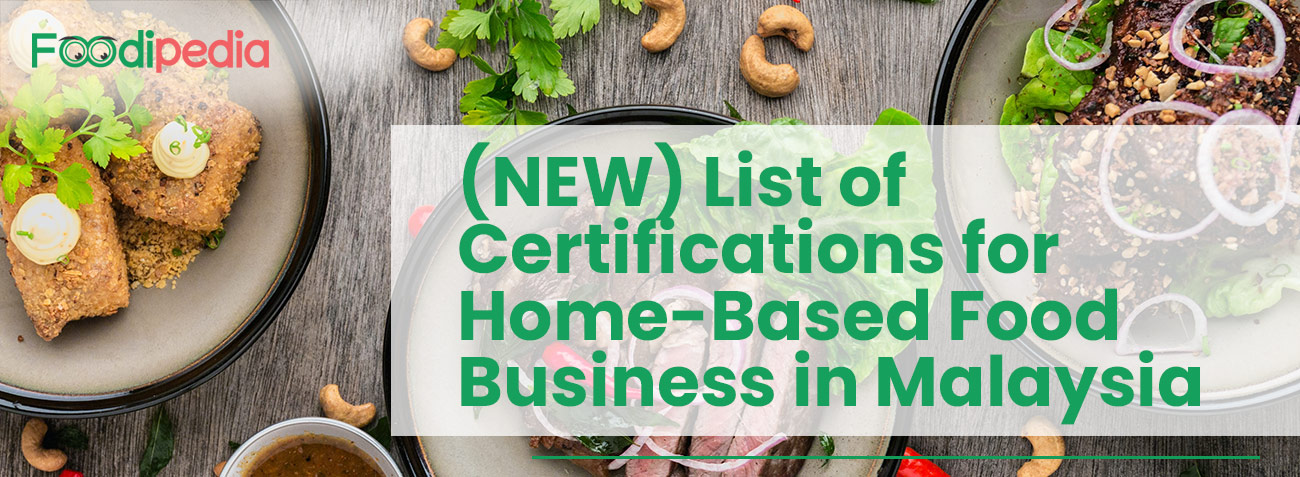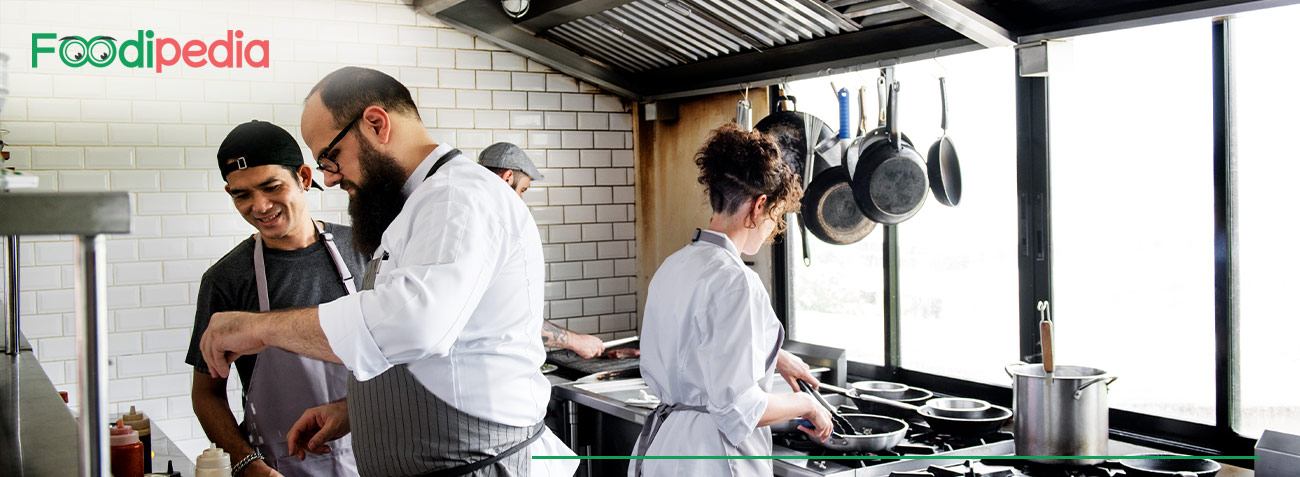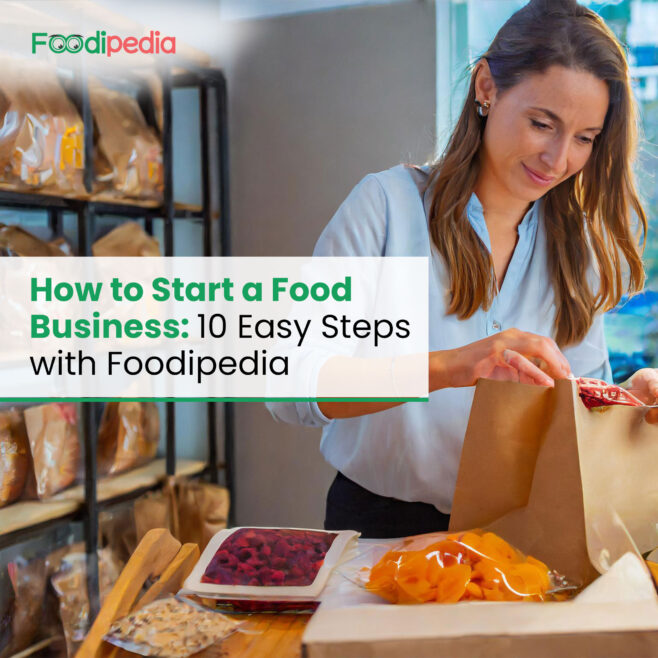
“Hi, I have a home-based food business. How do I get the Halal logo?”
For sure, we receive this inquiry almost daily now more than ever since Covid hit, leading to people venturing into the food business as their source of income.
But, opening a physical store is expensive and involves tiring processes so starting a food business at home is a way to go for Malaysians now.
We hear you. Below, you will find all the right answers you need relating to licenses and certifications for your home-based food business.
Home-based Food Business in Malaysia 2021
It’s no secret that many Malaysians have lost their jobs due to the pandemic. Thus, with a loss of income, the most promising industry to dive into is food and beverage.
Bruce Wong (in the article) and so many others have become self-taught foodpreneurs. Some even without any prior experience. However, with the surge of at-home food businesses, customers are at risk if sellers don’t take proper precautions.
Last year, almost 100 people had food poisoning from eating ‘puding buih’ made with expired eggs from a home-based food seller in Terengganu!
“We have asked the health authorities to provide an SOP for home-based food traders so as to help them generate some income, and at the same time ensure the safety of food that is sold, ” – Terengganu local government, housing, health and environment committee chairman Dr. Alias Razak
Although most consumers are well aware of the risks of unlicensed food handlers, they still buy to support local businesses and it is way cheaper than anywhere else.
So, if you don’t want this to happen to you, follow this guide on the certifications your home food business needs.
MOH-certified Guide for Home-based Food Business
Due to the growing number of home-based food businesses (perniagaan makanan sediaan di rumah), the Ministry of Health Malaysia has since released a helpful guide for all food operators at home to practice safe food handling.
Basic Requirements for At-home Food Handlers
- Suruhanjaya Syarikat Malaysia (SSM)
- Food Safety Information of Malaysia
- Anti-typhoid vaccine injection
- Attend Food Handling Course by any MOH-approved Food Handling Training School
- Practice food safety and health advice from MOH
- Conduct regular self-evaluation advised by MOH

Attire when Handling Food at Home
Although from the comfort of your home, when you are preparing food for your customers, you must practice good hygiene, starting from your attire in the kitchen.
- Wear clean clothes
- Use a clean and fitting head covering
- Wear a clean and brightly colored apron
- Wash your hands before, during, and after handling food
- Clean hands with soap after visiting the toilet
- Keep all utensils clean
Storage of Raw Materials
Firstly, you must separate all the raw materials intended for your customers from those for your household use. Another good practice is to label each raw material clearly and practice the First In First Out rule.
On the other hand, as for cold storage raw materials, follow the guidelines below:
- Make sure there is adequate space or procure raw materials daily.
- Always check the temperature. Throw away or immediately cook materials if electricity cuts off
- Keep raw materials in separate containers for easy handling.
- Do not over stuff your frozen food in the freezer/refrigerator.
Food Packaging for Home-based Business
All types of food packaging has to be of food-safe grade and can withstand the delivery process once the food is cooked. Here are the guidelines stipulated by MOH for food packaging:
- Food packaging must not rip easily and has to cover all the food.
- Newspaper touching the food is PROHIBITED.
- Keep all clean food packaging in a safe area away from raw materials and contamination.
- If using banana leaf, make sure it is properly cleaned before use.
- Keep food packaging in a well-lit area to easily detect any damage.
- Use clean and disposable gloves, tongs or suitable utensils to put food into packaging.
- DO NOT directly touch prepared food.
- Package food in a suitable area, never on the floor.
- DO NOT blow into food package.
- Separate your main food item from side dishes if packaged in the same container.
- Refrain from using a stapler to secure the food packaging.
Food Labeling for Home-Based Food
Basically, the MOH states that all food are to follow the requirements of the Food Regulations 1985 standards and labelling rules. And this includes that no nutritional claims are allowed on the packaging.
Ready-to-Eat Food Label

Processed Food Label

Self-Evaluation Form for Home-based Food Safety and Health
Even though no authorities will check up on your kitchen, you must be a responsible seller for the sake of your consumers. Hence, that’s why MOH has made a checklist to help food operators at home to do a home-based food safety and health evaluation by themselves.

For the full details of requirements for home-based food business, kindly contact us by filling up the enquiry form below.
All in all, if you’re thinking of staying as a home-based food service, this guide is your stepping stone to get the home-based food logo by KKM.

This is a smart initiative by MOH for home-based food sellers to display this logo on their food packaging. As a result, consumers are more confident in buying these products that follow all the food safety and health rules by MOH.
Be a Responsible Home-based Food Seller
All in all, although home-based food businesses are NOT eligible for GMP, HACCP, Halal, and other certifications that require premises, there is no excuse for poorly handled food.
So, if you’re thinking of doing business at home, make sure you follow this guide to keep your consumers satisfied and your business safe.
Need more food business tips? We’re the food marketing agency in Malaysia that works for you to elevate your business level to the max!
Next read: How to Get Nutrition Facts for My Product in Malaysia
DISCLAIMER
This article is for informational and educational purposes only and does not constitute legal or professional advice. Although we strive to provide accurate general information, the information presented here is not a substitute for any kind of professional advice, and you should not rely solely on this information. Please opt for a one-to-one consultation with us or a relevant professional for your specific concerns regarding food business solutions in Malaysia before making any decisions.




